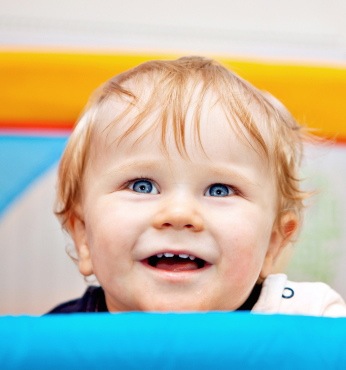 Subscribers Only
People
Subscribers Only
People 
The death of a baby is one of those terrible things that is rarely talked about yet affects a surprisingly large number of families every year in Wales. Infant mortality is also one of the key ways of measuring the health and inequality, being used by the World Health Organisation, the Equality and Human Rights Commission and many others to monitor how progress in Wales, the UK and countries round the world.
The first of the Bevan Foundation’s new briefings also looks at infant mortality, as one of nine measures of Wales’ health.
The briefing shows that in 2012, four babies out of every thousand born alive died in the first year of life.[1] Add these with the number of stillbirths, and a total of 507 babies were stillborn or died before the age of one.[2] That’s about ten babies a week – a figure so shocking that I treble checked the Office for National Statistics figures to make sure it was right. It is.
The tragedy of an infant death doesn’t fall evenly across society.
The briefing shows that whether you are rich or poor makes a big difference. Public Health Wales figures[3] demonstrate that mortality rates are higher in the most deprived areas than in the least deprived, with infant mortality rates in the most deprived fifth of areas being almost 50% higher than in the least deprived fifth. Put bluntly, this means that for every 10,000 babies born alive in Wales’ least deprived areas, 38 will die at between 1 and 52 weeks of age, while in the most deprived, 56 out of 10,000 babies born alive will die before their first birthday.
There are other inequalities too.
Young mothers are at particular risk of having a stillborn baby. Mothers under the age of twenty have nearly double the rate of stillbirth as women aged 30-34. UK evidence shows that babies born to families of Pakistani or Bangladeshi origin are also a greater risk of dying.
Thankfully, infant mortality rates are, in general, decreasing, albeit slowly. Medical science and good maternal care are doing a great deal. But they cannot address the differences in infant mortality that are associated with poverty and disadvantage – to do that needs a whole society effort.
The Equality and Social Justice Briefing on health will be published at the end of May and is available on subscription for £255 a year plus VAT or free for organisations who are Bevan Foundation members. The pilot phase has been part funded by a grant from the South East Wales Community Economic Development Fund.
Victoria Winckler is Director of the Bevan Foundation
[1] Welsh Government (2014) Births and Infant Mortality Statistics Wales, 2012. Statistical Bulletin 17/24. At: Births and Infant Mortality Statistics Wales, 2012
[2] ONS, Death Registrations Summary Tables, England and Wales, 2012. Table 5.
At: http://www.ons.gov.uk/ons/publications/re-reference-tables.html?edition=tcm%3A77-314473
[3] Public Health Wales (2013) Health of Children and Young People Wales Report, Table 7.3 http://www.wales.nhs.uk/sitesplus/922/page/69313


